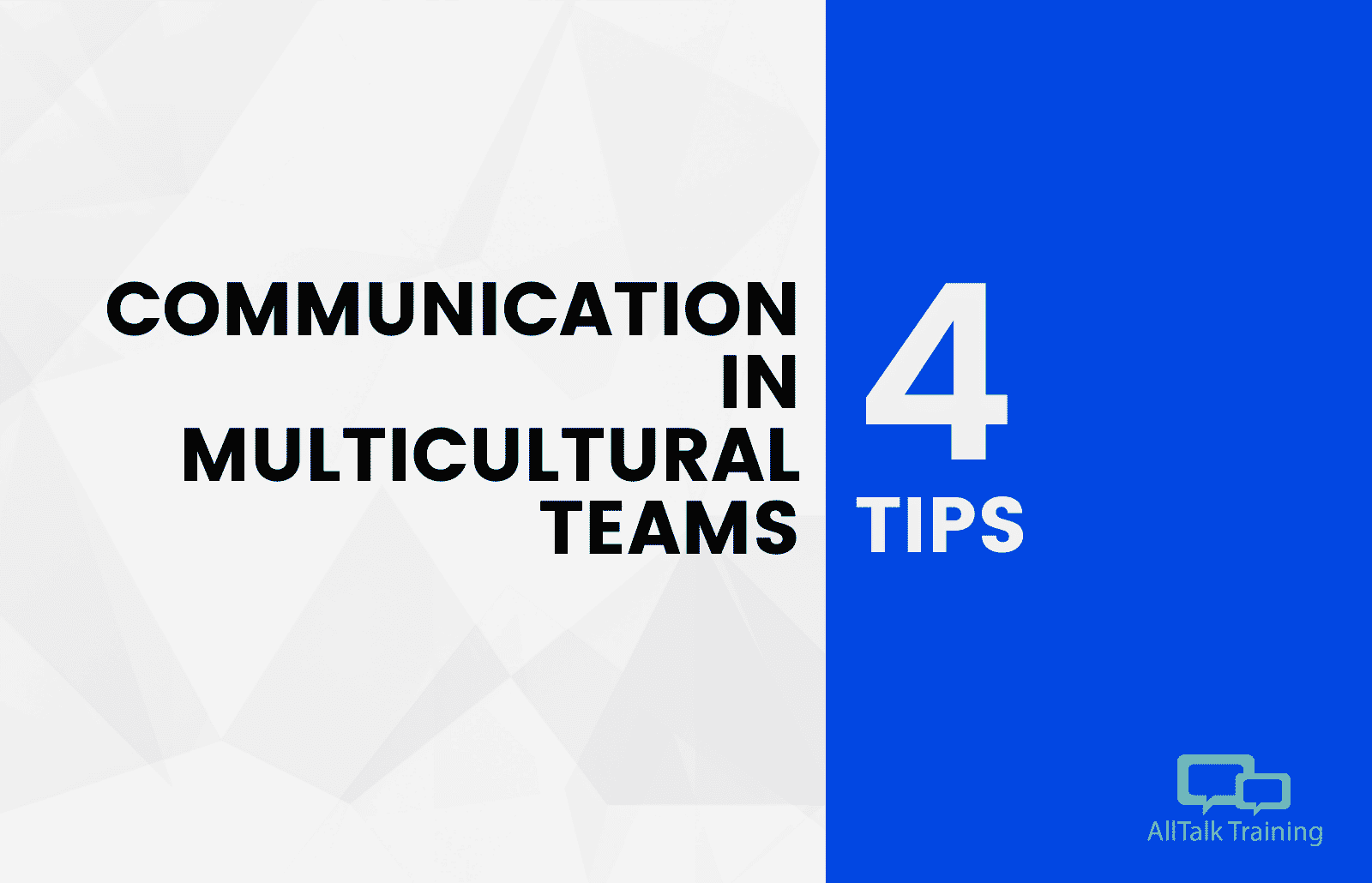Guest Post: AllTalk Training | Official Level Up partner
Good communication within teams promotes a greater exchange of ideas and smoother cooperation, resulting in better execution of projects. Professionals, and sometimes entire teams, often have to collaborate with each other in English when English is not their native language. Successful collaboration on multicultural teams means fewer instances of miscommunication and the preservation of good working relationships so that common goals and company targets can be reached. Here are some areas of communication that are often overlooked but can be really helpful for non-native English speakers who are working through English and with people from other cultures.
Learn about small talk
In some cultures, people see small talk as irrelevant and unnecessary conversation, however, in most English-speaking cultures, small talk helps to build and maintain good working relationships. If you are working in an English-speaking culture, keep in mind that you may be prompted to participate in small talk conversations, so it is a good idea to prepare for this. Remember also that what is considered a suitable topic for small talk can vary from culture to culture so make sure you take note of the topics you hear other people talk about before you dive into topics that you may be used to from your own cultural background.
Get comfortable with saying ‘I don’t understand’
Being confident and comfortable enough to say when you don’t understand something is a hugely underrated skill when it comes to communicating in a foreign language. And certainly, asking for clarification is not something that is taught as often as it should be, yet it is vital for good communication
. If you are unsure or do not understand what is being said, then how can you act on it correctly? It is not a good idea to pretend you know. Even though it may be uncomfortable at the beginning, try letting others know when you haven’t understood something correctly and practise asking for clarification more often. We promise it will get more comfortable and easier each time you do it and it will make working with others much better in the long term.
Recognise what polite looks like
In most cultures, it is important to be polite when interacting with colleagues and customers. When working across cultures, this can be challenging, as what is polite in one culture may be perceived as impolite in another culture. For example, in most English-speaking cultures, indirect statements and ways of communicating are often how people demonstrate politeness and, therefore, direct language is usually perceived to be rude even if it is not the intention of the speaker to be rude. In this case, using less direct language immediately softens the message and gets a much more positive response. So if you are working in a multicultural team, take note of how your colleagues interact with each other. Is it necessary to communicate in an indirect way with each other? Do they communicate differently with customers or with their superiors in a different manner? You can often learn about the appropriate way to communicate in a culture by observing others.
Focus on getting meaning across, not on perfect English
Sometimes you just cannot find the word you are looking for when speaking in a foreign language. Not being able to remember words or not knowing endless lists of words in English does not make you a ‘bad communicator’. If you cannot think of the precise word you would like to use, do not panic – there are other words you can use! You do not need that ‘big’ word when you know other ‘smaller’ words that mean the same. Alternatively, you could ask the person/people you are talking to for help. Remember, the aim of good communication is to get the meaning across and if you have to use five words instead of just one to explain something that is not the end of the world!
These are just some of the small changes you can make to communicate better and collaborate more easily with your colleagues on your multicultural team. And these are just some of the nuggets that our Level Up participants will learn in the Professional English Toolkit course delivered by AllTalk Training.
If you or your company are interested in supporting Level Up and becoming part of our growing partners network, please feel free to reach out to us any time or personally contact our Program Manager, Adnan Tuccar, through adnan@zartis.com.


